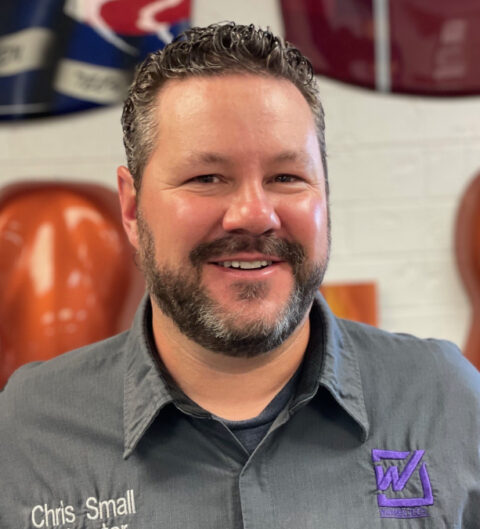“The opportunity to influence and support the next generation of skilled professionals is not just a job but a calling. I am committed to offering each student the same help, hope, and belief that was crucial to my own development, aiming to inspire and elevate them to surpass even their own expectations.”
Chris Small teaches Automotive Collision Repair and Customization at his alma mater, Warren Tech in Lakewood, Colorado. Small fondly recalls the impact his own automotive teachers had during his high school years, their dedication paving the way to a 20-year career in the auto body industry immediately after graduating. In his time as a professional at AkzoNobel and LKQ Auto Parts, Small embraced opportunities to mentor others. He recognized and thrived in the privilege of not just working in the industry but shaping it by training upcoming workers.
Small’s commitment to nurturing talent and leveraging his expertise brought him back to his alma mater as a teacher. His classroom mirrors a real-world collision center, with students rotating through learning skills needed to become estimators, painters, body technicians, detailers, and managers. In addition to collision repair, students also learn welding, airbrushing, and more, making for a robust experience. Small keeps up-to-date on industry standards through trades magazines, social media, and professional communities to make sure his teaching material is current. He seeks continuous improvement in his teaching methods, too, engaging with his advisory board and instructional coaches and exchanging effective techniques with his colleagues. Small’s ultimate hope is that students leave his program not only skilled and knowledgeable but also eager to share their passion and make meaningful contributions to the world.
Notes of Excellence
- Small’s students can earn up to 40 college credits towards an Associate of Applied Science Degree
- Students progress through Pro Level 1 and 2 ICAR modules, gaining certifications that not only bolster their resumes but also provide significant savings for their future employers—approximately $2000 per hire.
- Small advocates to other collision repair educators the value of offering science credits to make CTE programs more accessible and potentially increase student enrollment.
